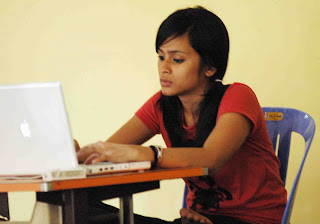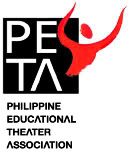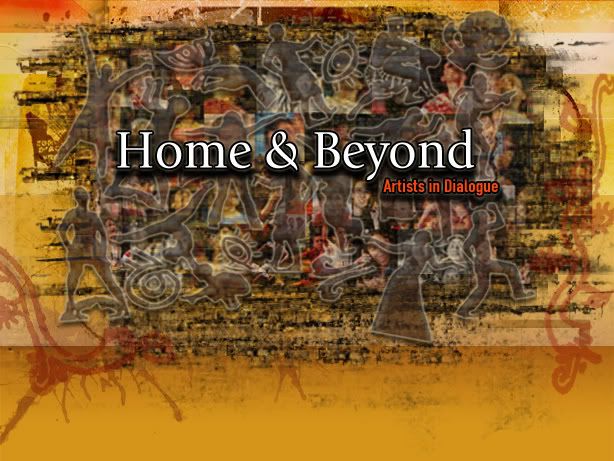Friday, 1 February 2008
Out of the Crib – A Singaporean’s Perspective
By Nurun Nisha M Heallmy
Spending the last 19 years of my life in Singapore, and hardly crossing the little body of water that the island is surrounded by, September 17, 2007 will forever be engraved in my memory as the day I left the all too familiar concrete city, and start to embrace chaos and see that the world stretches beyond strict laws and mundane routines.
I was one of two to be selected to pursue the Overseas Industrial Attachment Programme set by Ngee Ann Polytechnic (Singapore) with the PETA Mekong Partnership Project in Bangkok. To list down everything that I have done and been forced to do in the whole five months of the internship would probably take up a whole book, so I have decided to share the ones that I meant more to me.
The Land of a Thousand Smiles and Much Lesser English
Each time I asked fellow Singaporeans what Bangkok is like, I get the same answers: Bargain Shopping Paradise. Shopping suddenly seemed far-fetched when I first experienced trying to find the office of the PETA Mekong Partnership Project. Some of the roads were written in what it seemed to me like funny scribbles, accompanied by some English alphabets, which made up words I could not pronounce for the love of mankind. We dropped by official looking buildings with the hope to meeting someone who could speak fluent English. In the end, we resorted to spying on a man reading an English newspaper and finally getting him to write the office address Thai.
The two months that followed were full of adventures, taking into account the countless time we have decided to resign to fate every time we cannot figure out how to get home without hailing a taxi. I imagined that I was Lara Croft every time I had to hop off the bus, which never came to a complete stop. I went through painful and embarrassing encounters in trying to find directions to the restroom, only to have the Thais politely smiling and saying, “Mai kaow chai kha (I don’t understand),” as I hop on my feet in urgency.
As I had thick smoke blown to my face while strolling along the streets of Bangkok, I reached a conclusion that if all the drivers in Bangkok were to drive in Singapore, traffic police officers in Singapore would be kept busy suspending licenses. In Singapore, everyone knows the road rules stand: give way to pedestrians. In Bangkok, it was different: give way to frenzied drivers. I slowly realised that it was more or less the same in other countries, when I went to Cambodia and Manila.

Along the busy streets of Bangkok.
Although I stayed in Bangkok for two months, I lived the life of a tourist mostly. Not because I saw every tourist attraction there was available, but because we had our experience of being in the middle of a conspiracy involving a Tuktuk driver and a cunning restaurant owner. There we were, having ended a harmless night of drinks in Hard Rock Café and having men old enough to be our fathers trying to chat us up, and hoping to find a decent place for supper. The Tuktuk driver came in his bright shiny vehicle offering us a destination for cheap supper and we were brought to a safe-looking restaurant, which provided wonderful service. It dawned on us that we were cheated when we received the 1,000Baht bill for a meal that would cost half the price in Singapore. Needless to say, I swore off Tuktuk drivers that night.
After finally settling in, I realised being away from Singapore was not so bad. I appreciated the difference and enjoyed the hysterical adventures vis-à-vis the systematic and orderly Singapore.
Most importantly, I learnt to be wary and careful, which proved to be a significant lesson later on when I went to Cambodia and Manila.
The Land of Dust and Commando Insects
Lea L. Espallardo, the Project Director of the PETA Mekong Partnership Project, and I headed for Phnom Penh, Cambodia, days before the 3rd Mekong Performing Arts Laboratory commenced. It truly hit me that I was in another country altogether when I saw the airport. It reminded me of the airport one would see in a 1960s movie.
The ride towards the hotel was coloured with a myriad of motorcycles on the road, buildings no higher than two storeys, children running barefoot along the roads and an infinite amount of dust. I stared on in awe as the taxi driver drove to the likeness of the drivers in Bangkok. By then, I was used to not grabbing the seats and chanting prayers as the driver speed through the traffic.
My first assignment was to hand out invitations to the various embassies in Phnom Penh. I encountered friendly and unfriendly characters, and systems that rendered me speechless. While the staff from the other embassies simply accepted my invitation without much interrogation, I was firstly not allowed to enter the Singapore Embassy building because my purpose was definitely not to enquire about my visa, even though I am a Singaporean. The gates that surrounded the building seemed secure and stood out from the other architecture in Phnom Penh, with its high walls and no possible view of the building inside. I approached the tiny window with the guard inside and stated my purpose and he was friendly as he asked me for the documents. He then whipped out a device and scanned the letters for malicious content. I was then convinced that the system was foolproof. I reckon that if I could look like a threat, then anybody could be a threat.
After recovering from the incident at the Singapore Embassy, I went on to conquer the streets along the Riverside in Phnom Penh, ready with the Laboratory posters and masking tape. Unlike Bangkok, Phnom Penh seemed to have a significant number of locals who could speak English. I mastered the skill of pasting posters on dusty doors and knew when I should turn away from dark alleys. In Singapore, you could walk almost anywhere sans worry. I started an addiction to riding the Tuktuks and motordops, or as Avie would call them, “sun-dried motorbikes”, and treated each ride like an adventure. As Alice Walker, an African American novelist, said, “Expect nothing, live frugally on surprise.”
 Document, document, document.
Document, document, document.
The participants arrived in Phnom Penh and then I jumped into my role as the Documentation Head. We were never taught annotation in school, at least, not the one required for the Laboratory. My ears got accustomed to listening to six languages at one time, and comprehending over eight accents. Stereotyping has never been more apparent before I started the Laboratory. I came upon characters that fulfil and characters that defy the stereotypes that I have often heard of in the past. Overall, the experience I had with each participant proved to be enriching and enlightening.
After we travelled to Siem Reap, where I witnessed the beauty of Angkor Wat firsthand, we took a boat ride to Battambang. Along the river, I saw naked little boys in the open and playing with their friends. One of the little boys had no pants on, so his bottom was placed nicely on the warm seat of his little boat and ironically he had a long-sleeved shirt on. He was rowing and looking at us before he realised his tiny boat was stuck and he lifted his tiny bottom and worked his way, paddling his tiny paddles and trying to get out of the tangle of mess. We came into this placed filled with more water plants growing from deep, down underwater and with vicious twigs sticking out. When we got in the route, twigs and branches were swatting against the side of the boat. Pieces of branches lost in the war remained on the boat while the mighty ones fought on and tried to swat us. We ducked and triumphed in victory at the end, but not without some bruises to prove our relentless fight. Then as we moved forward, there was another boat in our way. Both boats slowed down and manoeuvred their way out of each other's paths to reach their respective destinations. That incident reminded me of the streets in Bangkok where the courageous and highly skilled drivers had to worm their ways through small tiny lanes.
 Chilling with the Laboratory dolls and the Thai girls.
Chilling with the Laboratory dolls and the Thai girls.
In Battambang, I saw real cattle and more naked kids. One may think this is not a big deal, but one can only see cattle in school textbooks or butchered in markets, while naked children are hidden from the disapproving eyes of the public. We bonded with the village kids, and broke all boundaries of language barriers. The children were open and full of affection, compared to the children in Singapore who were always busy with all sorts of lessons that the parents enrolled them in.
People were not the only ones who got close to us. Insects of all sorts greeted us in Battambang, too. I have not encountered so many insects in my whole life in Singapore. Especially during the Closing Recital Performance. The insects attacked like their lives depended on it and they bit us everywhere, hence, I have named the insects of Cambodia “Commando Insects”, for that was the term to describe them.
 Language barriers, be gone!
Language barriers, be gone!
When Cambodia was over, we had to say goodbye to the participants and people in Battambang. Over the period of three weeks, I have changed my perspective of the world in yet another way. In the words of Henry Miller, American writer and painter (1891-1980), "One’s destination is never a place, but a new way of seeing things."
The Land of Funny Delicacies and Horror Stories
Manila, Philippines, is set to be our last stop for the whole internship programme. Prior to that, Rogie warned me about the incidents that were deemed ‘normal’ in Manila. Among the stories were tales of random people being stabbed, robbery, and a local delicacy called Balut, a fertilised duck egg with a nearly developed embryo inside that is boiled alive and savoured. It was definitely not the kind of insight I was looking for before my trip but Rogie seemed to enjoy seeing my expressions at each story.
When we reached Manila, I discovered my highly sceptical inner self. It was only after much convincing from the PETA staff, that I relaxed a little. Among the three countries that I have visited in my internship, I first felt the pangs on homesickness while I was in Manila. A little delayed, one might say, but it was only in Manila that we faced difficulties and horror in finding a decent apartment. From facing the possibilities of bunking in a cubicle for the night, to having our bags left outside the house by an unsatisfied landlady, we finally found an apartment and resorted to dealing with broken faucets and more monster-sized insects.
The people in Philippines were also different from the previous two countries. I was a little intimidated when I first witnessed them in a conversation during lunch. Animated conversations filled the air, raised tones broke the silence, and I was anticipating a fistfight in any moment. Turns out, Filipinos are just enthusiastic in their conversations. Instead of biting my fingernails every time the conversation gets heated up, I learnt to laugh every time they do, even when I do not understand a single word.

At the film shoot with Avie and Alfred Vargas.
By then, I was used to seeing guards at supermarkets carrying rifles as long as my upper torso. The first time I saw it in Cambodia, I was dumbfounded at the open display of weapons. In Singapore, there was once a case of army personnel who left the military camp with a rifle, and triggered a 20-hour manhunt involving over 200 police officers. Needless to say, I doubt anyone would like to bring a gun out for a stroll in Singapore anymore. When I found out that it is normal to own a gun if you live in Philippines, I started wondering if cars were bulletproof, and if truly everyone knew how to work a gun, for I am not fond of surprise shots.
Public showering also seems to be apparent in Manila. Almost everyday, we would see a woman brushing her teeth beside a bank, a mother giving her stark naked kid a shower by the roadside or a man rinsing off the soap from his body just meters away from a restaurant.
A senior member of PETA brought us to Laguna, a province in the Philippines and there, we saw little towns and learnt that vagrants would prefer to be called ‘informal settlers’ and they would set up their homes in any vacant land or building. We saw the view of the city from the top of the mountains and I was amazed at the sight. You see, the highest natural point in Singapore is only 166 metres and the tallest building is 280 metres, hence, there is no way one can get a bird’s eyes view of Singapore from a natural point without a tall building covering half the view of the city. I saw a real waterfall, visited a woodcraft shop which had various intricate crafts made by wood shavings, and enjoyed the view of a lake that was probably equivalent to the size of Singapore itself. The lake that we have in Singapore would dwarf in comparison to the lake in Philippines, and named a ‘pond’ instead.
I fought the urge to run for my dear life when everyone around me said I had to try and eat the snake dishes in the restaurant serving exotic food. I thanked my lucky stars when all they served me was Halo-halo, a local desert. In the end, the closest I got to the snake was when I touched it and end the relationship right there and then. The only weird delicacy that I am ready to try is the Balut, which has taken me about three weeks to prepare myself for. All I need is a blindfold and some rope to tie me to the chair. My short trip in Manila can be summed up with a quote from James Michener, an American author (1907-1997): f you reject the food, ignore the customs, fear the religion and avoid the people, you might better stay at home.
 A day in Fort Santiago, Manila.
A day in Fort Santiago, Manila.
Despite all its stupefactions and humdingers, my adventures in Thailand, Cambodia and Manila has left me with a reluctance to return to clean and green Singapore. I pray that this writing never reaches my mother but I would like to jump off moving buses, bask in life’s simplicities and build friendships where language is not the common medium. As Helen Keller, American author, activist and lecturer (1880-1968), would rightly put it, “Life is either a daring adventure or nothing.”
PETA SEA Group

 Home and Beyond is an integrated communication tool for the PETA members, staff and partners of the PETA Mekong Partnership Project. It consists of a weblog and occasional e-newsletter containing project news updates, reflections, journals, messages written for internal reading/sharing of members and alumni of PETA and its Project partners.
Home and Beyond is an integrated communication tool for the PETA members, staff and partners of the PETA Mekong Partnership Project. It consists of a weblog and occasional e-newsletter containing project news updates, reflections, journals, messages written for internal reading/sharing of members and alumni of PETA and its Project partners. 





